Adam Mann
Adam Mann is a freelance space and physics reporter. He has a degree in astrophysics from University of California, Berkeley, and a master’s in science writing from UC Santa Cruz.

Trustworthy journalism comes at a price.
Scientists and journalists share a core belief in questioning, observing and verifying to reach the truth. Science News reports on crucial research and discovery across science disciplines. We need your financial support to make it happen – every contribution makes a difference.
All Stories by Adam Mann
-
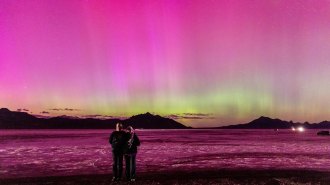 Space
SpaceThe sun is entering solar maximum. Expect auroras, and more
May saw the strongest auroras in recent memory. As the sun gets more active, those light shows may be a preview of what’s to come until at least 2026.
-
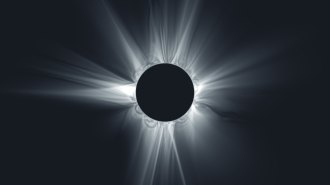 Space
SpaceHere’s how predictions of the sun’s corona during the 2024 eclipse fared
Models from Predictive Science Inc. forecasted the appearance of the sun’s corona during the April eclipse to better understand our star.
-
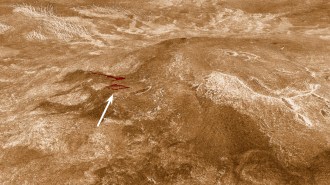 Planetary Science
Planetary ScienceVenus might be as volcanically active as Earth
Data from NASA’s Magellan spacecraft suggest that volcanic activity is widespread on Venus.
-
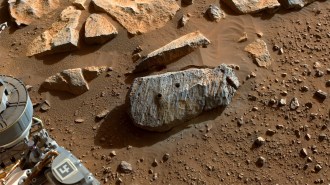 Space
SpaceNASA’s budget woes put ambitious space research at risk
Mars Sample Return and missions to study other planets and celestial bodies, including lunar efforts, face big cuts and delays.
-
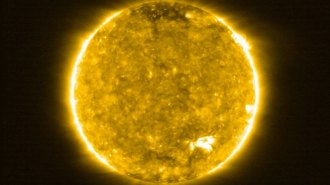 Space
SpaceScientists are getting closer to understanding the sun’s ‘campfire’ flares
The detection of cool plasma before the tiny outbursts on the sun is helping researchers make connections between campfire flares and other solar eruptions.
-
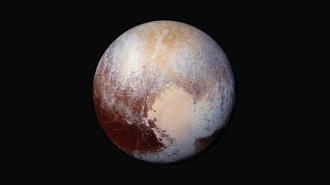 Planetary Science
Planetary SciencePluto’s heart-shaped basin might not hide an ocean after all
Planetary scientists propose an alternative theory to explain why Sputnik Planitia has stayed put across Pluto’s equator.
-
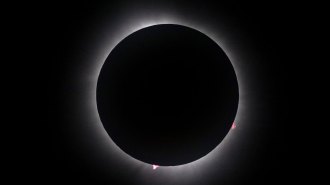 Space
SpaceDuring the awe of totality, scientists studied our planet’s reactions
Earth’s atmosphere was a big area of focus for scientists studying the total solar eclipse on April 8, 2024.
-
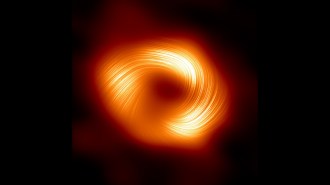 Space
SpaceA new image reveals magnetic fields around our galaxy’s central black hole
Astronomers have captured polarized light coming from the Milky Way’s central supermassive black hole, giving insight into its magnetic fields.
-
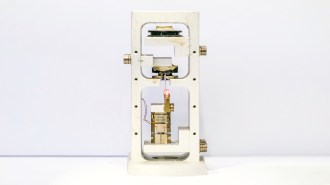 Physics
PhysicsA teeny device can measure subtle shifts in Earth’s gravitational field
No bigger than a grain of rice, the heart of the instrument is the latest entrant in the quest to build ever tinier gravity-measuring devices.
-
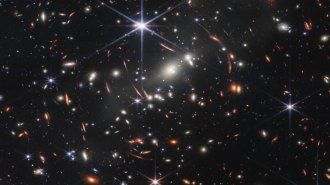 Space
SpaceDid the James Webb telescope ‘break the universe’? Maybe not
There’s no need for strange new physics to explain anomalously bright, massive galaxies seen by JWST, Hubble data suggest.
-
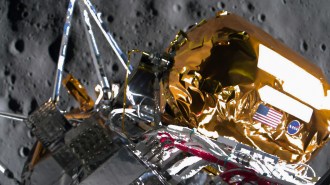 Planetary Science
Planetary ScienceOdysseus’ historic moon mission comes to an end
Odysseus downloaded data from all payloads before going to sleep February 28. The cold lunar night proved fatal to efforts to reawaken the lunar lander.
-
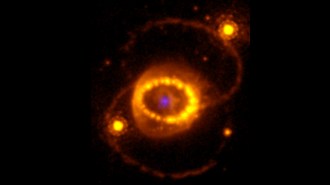 Astronomy
AstronomyJWST spies hints of a neutron star left behind by supernova 1987A
Signs of highly ionized atoms in dusty clouds at SN 1987A’s explosion site suggest a powerful source of X-rays — likely a neutron star — lurks within.